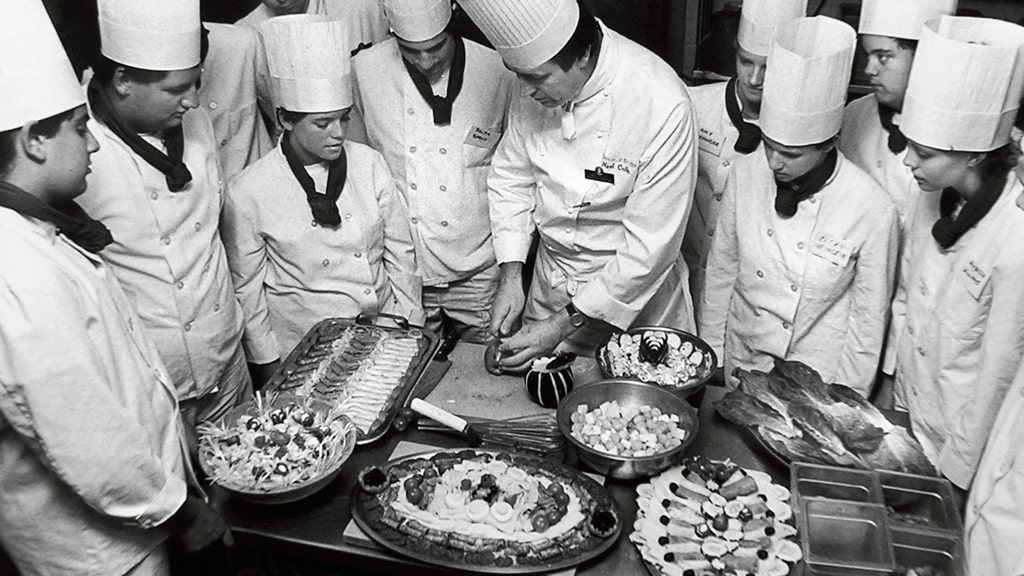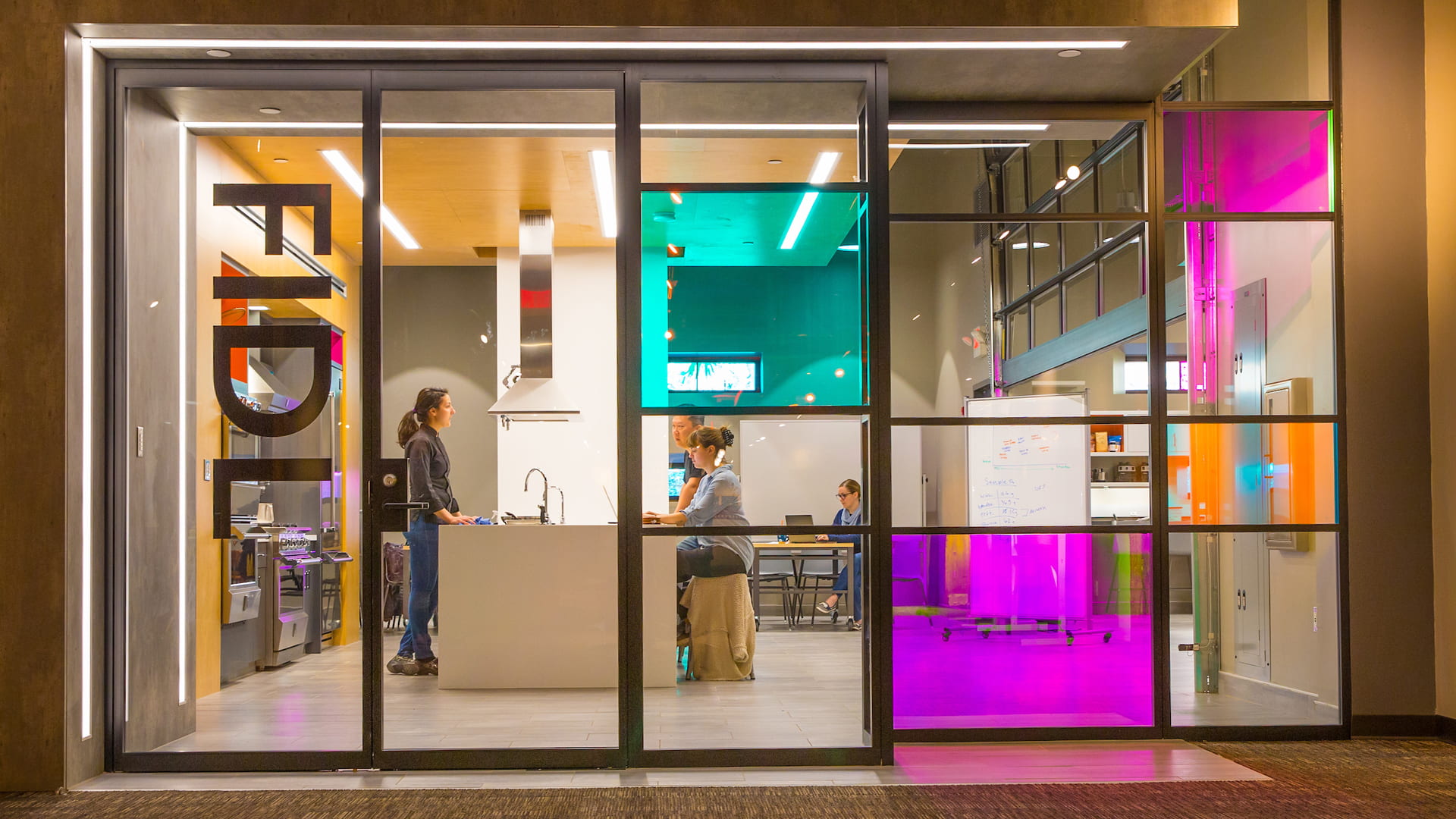Explore the history of Johnson & Wales University’s College of Culinary Arts, which was founded in 1973 and formally evolved into the College of Food Innovation & Technology (CFIT) on June 1, 2020.
Then & Now
 In the early 1970s, Johnson & Wales Junior College of Business formally became Johnson & Wales College. During this time, Morris Gaebe became campus president, and began a run of program expansions and extensions of the university’s footprint.
In the early 1970s, Johnson & Wales Junior College of Business formally became Johnson & Wales College. During this time, Morris Gaebe became campus president, and began a run of program expansions and extensions of the university’s footprint.
In 1973, JWU purchased more than 100 acres along Narragansett Bay and transformed a WWII Liberty shipyard into a school to teach culinary arts. The area eventually became the Harborside Campus.
After much deliberation, JWU’s board decided to launch a hospitality program and an unconventional degree in culinary arts. In 1974, John J. Bowen '77 was hired as a faculty member in the nascent culinary arts program; he went on to become director of the culinary division, then dean of culinary arts in 1983.
In 1993, JWU established a bachelor’s degree program in the College of Culinary Arts, the first in the U.S. A bachelor of science in Baking & Pastry Arts followed in 1997. In 1999, the university added a bachelor’s in Culinary Nutrition that soon became the first program of its kind to receive accreditation from the American Dietetic Association (ADA).
A wildly popular wellness & sustainability concentration launched in 2011. Its success became a proof of concept that led to the new Sustainable Food Systems bachelor’s degree that launched under CFIT.
Also in 2011, JWU’s 82,000-square-foot, state-of-the-art Cuisinart Center for Culinary Excellence (CCCE) became the country’s first culinary facility certified by Leadership in Energy and Environmental Design (LEED).
The sustainable mindset continued to influence the school’s programming, too, with new degrees in Culinary Nutrition, Dietetics and Applied Nutrition, and Culinary Science & Product Development rolled out in 2016-17.
As JWU’s culinary programs grew more interdisciplinary — and more focused on how food shapes our lives, our culture, and our future — a name change was in order.
A New Era: College of Food Innovation & Technology

In 2020, the College of Food Innovation & Technology (CFIT) was established to prepare students to explore the role of food in everyday life, with a focus on science, nutrition, sustainability, safety, policy, business, and product development and design.
To provide leadership and vision for the new interdisciplinary college, JWU appointed Jason R. Evans, Ph.D., as dean.
“Very few organizations in the country have the intellectual and physical assets to prepare students for all of these roles, but CFIT does,” he says. “Undoubtedly, the need for problem solvers in the food system is greater now than ever. CFIT can offer its prospective students, partners and donors a unique opportunity to make the world better.”